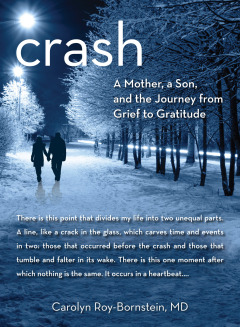Doctor, Should You Be Writing?
There was a time when a handful of doctors wrote books. Now, many doctors' books have graced the New York Times Bestseller list. And there are even more opportunities for doctors to write and reach an extraordinary number of people--through blogging, publishing online articles, or writing newsletters--to name a few.
Doctors decide to write for various reasons--from the desire to reach more people with the valuable health information they have to offer to supporting an entrepreneurial venture to the joy of tapping into their creativity. I've known a doctor who increased funding for his medical research, others who segued into a speaking or consulting career (actually, he did that, too!) and still others who saw the writing as more of a satisfying creative outlet.
As Harvard Medical School's CME publishing course is coming up in just over a month, it's the perfect time for a doctor to explore the itch--or dream--to write. The official title of the course is Achieving Healthcare Leadership and Outcomes through Writing and Publishing.
Here are a few takeaways and tips from past graduates of Harvard Medical School's CME writing and publishing course:
From Donna Hicks, PhD, author of Dignity: "Only write about something that you know. You cannot fake authenticity and authenticity is what sells."
Hicks' book Dignity: Its Essential Role in Resolving Conflict was published by Yale University Press and Hicks reports, "Publishing Dignity has changed my life. Becoming an author catapulted my credibility exponentially. Three years after publishing my book and I am in just as much demand as the first year. I love giving talks about a topic that I feel so passionate about. You can't shut me up!"
Martha Rhodes attended the Harvard course two years ago and her book 3,000 Pulses Later: A Memoir of Surviving Depression without Medication was featured in the New York Times, Psychology Today online and many other publications. The book's publication has led to paid speaking engagements where she has the opportunity to reach more people with her message. Her biggest takeaway:
"Understand who your audience is – visualize the exact, specific person you want to read your book and why you want them to read it. And the biggest takeaway? — Just proceed!"
And Leslie Shapiro's attendance led to writing Understanding OCD: Skills to Control the Conscience and Outsmart Obsessive Compulsive Disorder which is being published by Praeger Publishing. She suggests anyone considering writing a book to ask yourself, "If you don't write it, who will?"
You don't need to be contemplating a book to attend. You can find out more about writing articles, blogs and more at the course as well.
The course will be offered March 31 - April 2 at the Fairmont Copley Hotel in Boston, MA and includes sessions on understanding the publishing industry, narrative writing in healing, how to write a memoir, writing a book proposal, publishing choices, how to write compelling prose, using social media and more.
Click here for more information on Achieving Healthcare Leadership and Outcomes through Writing and Publishing.





 Post a Comment
Post a Comment

